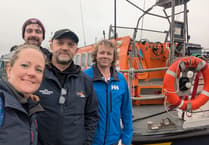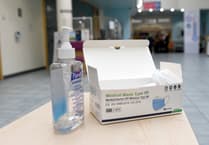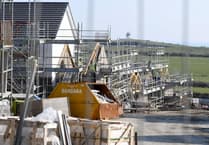The island could introduce enhanced cashback, where a customer doesn’t have to make a purchase, which could be an alternative to an ATM in some locations.
Enterprise Minister Tim Johnston MHK says this is not currently available in the Isle of Man but could update its legislation to align with the UK, which facilitates this service.
He said that this ‘could be seen as an alternative to the provision of ATMs where there are retail outlets present to facilitate the service’.
The minister added: ‘Retail outlets would need to sign up for the service, the enticement being they receive a small fee per transaction.
‘This service differs from current cash back system, as it is cash withdrawal directly from an account rather than an enhanced payment for a product. Retailers will require an additional bit of kit to their existing payment terminals.
‘Discussions are underway with PayPoint which provides this service in the UK.
‘This might serve those communities that aren’t busy enough for an ATM. The intent would be to approach retailers/businesses in these areas to identify possible participants.
‘If this is determined to be a viable option, the department will consult and work with the Financial Services Authority and Treasury to facilitate the implementation of the option on island.’
This was in answer to a written question posed by Douglas South MHK Sarah Maltby, who wanted an update on the progress made with the Access to Cash report published in January last year.
issues
Mr Johnston said: ‘The department is currently in the information gathering and analysis phase in order to identify specific issues that may require addressing, recognising that the report, whilst engaging with the banks and certain businesses, did not engage with the public in general.’
In terms of ATM network assessment, the DfE is continuing to liaise with local banks and LINK, the UK’s largest cash machine network, connecting virtually all the UK’s ATMs including those in the island.
‘LINK have conducted an assessment in various locations around the island to see if any location warrants the installation, funded completely by LINK, of a free to access ATM. There are certain criteria that LINK use when making the assessment,’ Mr Johnston said.
‘It concluded that Port St Mary met their criteria and a new free-access ATM has been installed there.’
Two surveys have been developed to assess the views of businesses and individuals on their preferences and day-to-day issues with using and accessing cash.
‘These surveys will assist in determining the range of any possible intervention that may be required and in what areas,’ the minister added.
The business survey will be sent out ‘in the next fortnight’.
Meanwhile, banking hubs, a shared bank space that’s similar to a traditional bank but available to everyone, are also a consideration for DfE.
The hubs consist of a counter service operated by UK Post Office staff, where customers of any bank can withdraw and deposit cash, make bill payments and carry out regular banking transactions.
Mr Johnston continued: ‘It could be useful to help determine whether or not a banking hub or variation thereof could be viable or if indeed it is required.
‘Further information will be required before a realistic assessment can be completed. That information will be provided through the surveys.
‘Discussions have been held with the local banking groups on the subject of banking hubs.
‘Banking hubs in locations where there are currently no bank branches could prove difficult to establish as demand for branch based services is already viewed as low in these areas and branch banking is available in nearby locations.’
For cash management, the department has received advice from Treasury that the current levels (December 22) of cash circulating in the economy is approximately £78.954m, with an additional £0.5m of withdrawn currency remaining in circulation.
Mr Johnston added: ‘Historic data shows that this is slightly down on the figure for the previous period, but has recovered since the pandemic, when significantly less cash was in circulation.’
He explained that the banks have indicated that they do not hold reserves of cash over what they would normally hold, suggesting that ‘normal’ amounts of cash are circulating.
This means the use of cash within the economy ‘has not changed significantly since the end of the pandemic’.




.png?width=209&height=140&crop=209:145,smart&quality=75)
Comments
This article has no comments yet. Be the first to leave a comment.